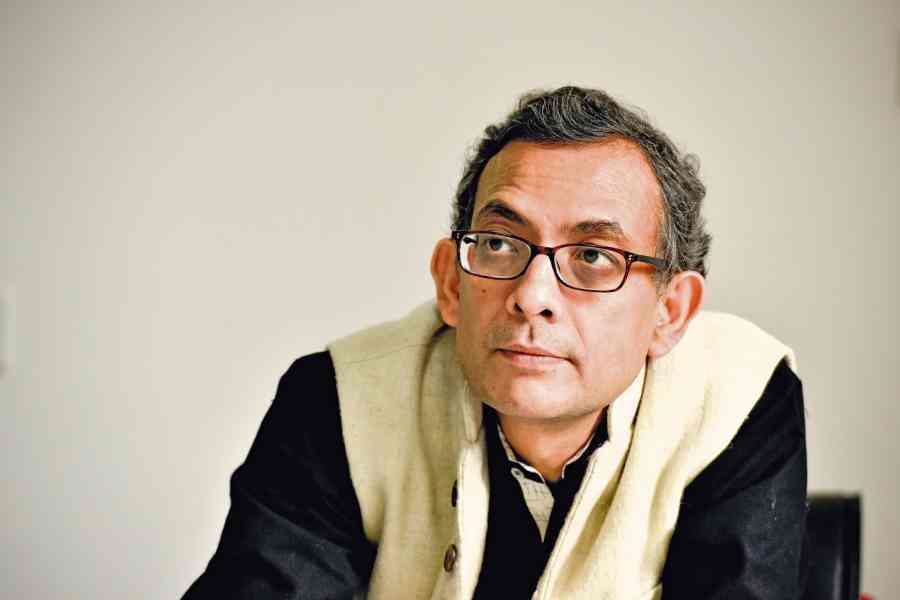India should consider whether the cheap oil imports from Russia are 'worth it' after the Trump administration announced an additional 25 per cent tariff on Indian goods, Nobel laureate Abhijit Banerjee has said.
Last week, US President Donald Trump signed an executive order, slapping an additional 25 per cent levy on India for New Delhi's purchases of Russian oil, bringing the total duties to 50 per cent -- among the highest imposed by the US on any country in the world.
The additional 25 per cent duty will come into effect on August 27.
"We need to think hard about whether Russian oil imports are worth it and then go back to the US to say that, you know, will they take it (tariff) off, if we stop importing Russian oil," Banerjee told PTI on the sidelines of an event organised by BML Munjal University.
Since the steep tariffs are likely to hit the USD 27 billion of non-exempt exports that India does to the US, there has been chatter around stopping or curtailing oil imports from Russia.
"It is not crazy to think about it. At a 25 per cent tariff, some of our exports are already not competitive, so maybe 50 per cent (tariff) does not matter," the eminent economist said.
India is the largest importer of Russian crude, purchasing 1.6 million barrels per day in July. However, it has not placed any orders for August and September, mainly because the discounts that initially encouraged Indian refiners to import oil from the Black Sea have decreased to about USD 2 per barrel.
In terms of volume, India imported 88 million tonnes from Russia in FY25, out of the total shipment of 245 million tonnes.
With such a minimal price advantage compared to other internationally available oil, Indian refiners did not place any orders for August and September.
Oil companies typically secure import contracts about two months in advance, meaning the supplies for August and September were arranged before Trump's August 7 announcement of higher tariffs.
The bilateral trade deal between the US and India has been stuck over the US demand for greater access to India's agricultural and dairy market.
Asked if India should lift curbs on investments from China, Banerjee said, "Maybe we should combine that with trade negotiations with China".
"I think it is a good moment to do it. The Chinese also need to think of how they will deal with the US, and what leverage points they have," Banerjee added.
Following the Galwan clash in 2020, India took a hard stance on China and its companies operating in the country.
Under Press Note 3 of 2020, the government has made its prior approval mandatory for foreign investments from countries that share land borders with India.
These countries are China, Bangladesh, Pakistan, Bhutan, Nepal and Afghanistan.
Following the decision, FDI proposals from these countries need government approval for investments in any sector in India.
Asked whether India should join the ASEAN trading block, he said, "Maybe, I think we need to. I think China is much more important than ASEAN".
Responding to a question on how he sees the Indian economy doing this year amid geopolitical tensions and trade uncertainties, Banerjee said, "Not as good as we expected".
He pointed out that the middle class is actually hurting, and for the past few years, private investments have also not picked up.
"Companies like TCS are not hiring, the salary of IT employees is not increasing... These are all issues we have not dealt with, and we are sitting on them, so we need to kind of embrace the fact," he said.
Except for the headline, this story has not been edited by The Telegraph Online staff and has been published from a syndicated feed.










